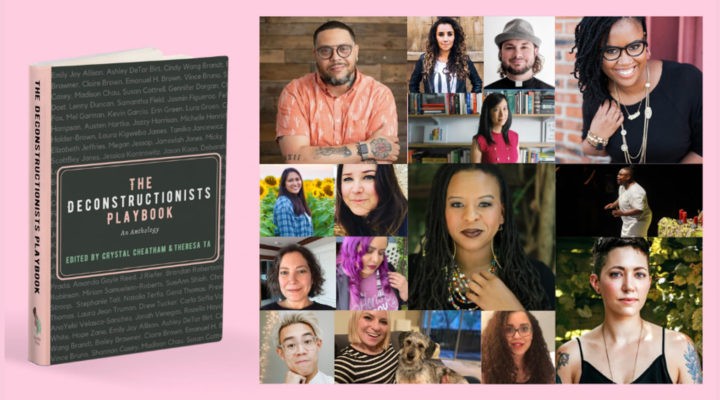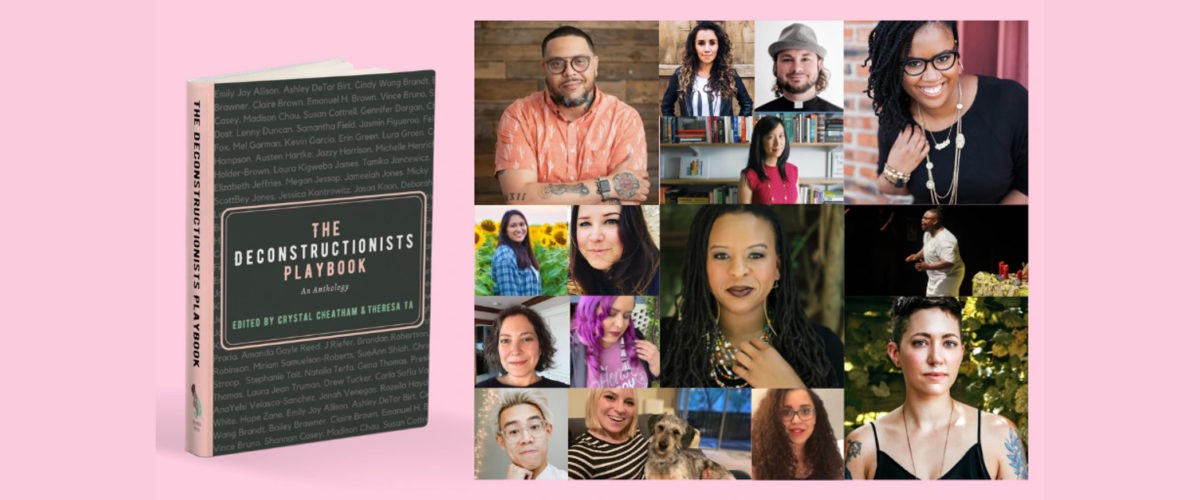A new devotional anthology seeks to shepherd readers through religious doubts and toxic church teachings by showing that inclusive, non-judgmental ways of being Christian do exist.
“We want Christianity to be a practice that we enjoy and that doesn’t inflict harm and pain on other people,” said Crystal Cheatham, founder and CEO of Our Bible App and an editor of The Deconstructionist Playbook, a collection of theologically progressive reflections scheduled for publication in April. “We are trying to polish off the Christian name and let folks know that there is room for them, too, if they want it.”
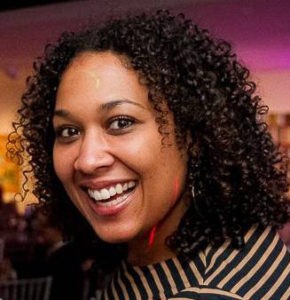
Crystal Cheatham
Those struggling with Christianity have a lot to be disturbed about, she said. Christian nationalism and white supremacy have taken root in many traditions, along with teachings that minimize women, condemn LGBTQ people and deny that Black lives matter.
The playbook offers alternative perspectives from more than 60 laypeople, pastors, seminarians and theologians who present experience-based approaches to faith that embrace doubt and individual exploration.
“The idea is that we are able to offer folks a safe landing as they are processing these things on their own,” Cheatham said. “And it’s not just about religion. It’s also about the #MeToo movement and Black Lives Matter and the planet, the way we vote and gentrification.”
Handbook contributor Jason Koon said he wrote two devotionals for the project because he knows what it’s like to confront the toxic theologies of a lifelong religious tradition.
“I had to go through that deconstruction process when the theological room I had walled myself into didn’t hold up anymore,” said Koon, an ordained Baptist minister, former Southern Baptist pastor and a contributing writer for Baptist News Global and other publications.
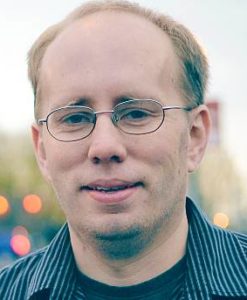
Jason Koon
The Morganton, N.C., resident said he had long struggled with the various end-times scenarios popular in the Southern Baptist Convention and other evangelical churches. During and after seminary, he prayed for acceptance of the ever-present premillennial dispensationalist doctrines.
“I call it earth-evacuation theology. It all seemed forced on the biblical texts. To me it just wasn’t there,” he said.
One of the two devotionals he contributed to the book project is on that topic. “It’s called ‘Deconstructing Heaven’ and deals with this typical evangelical notion of rapture and heaven and how they can be escapist and lead us into not caring for this world or the people around us because we’re looking for our ticket out of here.”
But in the Hebrew prophets, Koon said, he found a consistent and much more hopeful vision of a coming golden age that’s not about escaping the planet and its people. “They present a vision of God’s rule on earth that doesn’t involve leaving here to go in the sky. It’s bringing the kingdom of God into this world.”
Koon was propelled from the conservatism of the SBC with the election of Donald Trump in 2016 and the subsequent all-in embrace of the president by conservative Christians.
“The enthusiasm kept ramping up, and I just didn’t get it,” he said. “At the same time, I had friends outside my white, evangelical world challenging my worldview on LGBTQ inclusion and racism. At this point I am still an SBC pastor, but I am deconstructing everything, putting it all on the table. I examined everything and even wondered if I am still a Christian.”
Koon said the Our Bible App — whose publishing arm is producing the handbook — provided him with progressive Christian frameworks that helped him work through the reconstruction of his faith. “I don’t agree with everything that’s said there, but it presents kingdom diversity in a very real way.”
“I was taught many things growing up that would qualify as toxic theology.”
The deconstruction process has helped him reconstruct a faith that embraces diversity, he added. “I’m not a gay Christian, but I know gay Christians who are trying to follow Jesus just like I am.”
For Cheatham, the break with the church of her childhood came when she came out as a lesbian her senior year in college. But the momentum had been building.
“I was raised a Seventh-day Adventist in a fundamentalist, rule-based way of life,” she explained. “I was taught many things growing up that would qualify as toxic theology, including women cannot be ordained, purity culture and toxic views around sexuality, gender and LGBTQ.”
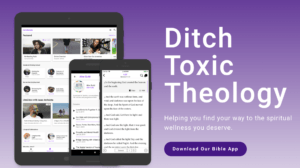 Coming out led her to rediscover God “outside my fundamentalist bubble” as she worked for nonprofits advocating for LGBTQ persons in religious spaces and, at Vanderbilt University Divinity School, encountered thought leaders and ministers who had been through the faith deconstruction process.
Coming out led her to rediscover God “outside my fundamentalist bubble” as she worked for nonprofits advocating for LGBTQ persons in religious spaces and, at Vanderbilt University Divinity School, encountered thought leaders and ministers who had been through the faith deconstruction process.
“They came out on the other side still in love with the Bible and with God and with Jesus,” she said. “They were the catalyst for me affirming my own Christianity.”
After an unsuccessful search for a devotional app that embraced diversity, Cheatham launched Our Bible App in 2018. What it and The Deconstructionist Handbook have in common is an intent to inspire people who are on shaky spiritual and theological ground.
“We come at this from the perspective that faith is a journey — there is no concept of backsliding here,” she said. “We want to give you tools to get to the next point.”
Related articles:
Do you wonder if you’re the only one who believes the way you do? | Opinion by Jason Koon
Let’s help evangelical Christians break free of the shame that drives them | Opinion by Eric Minton

